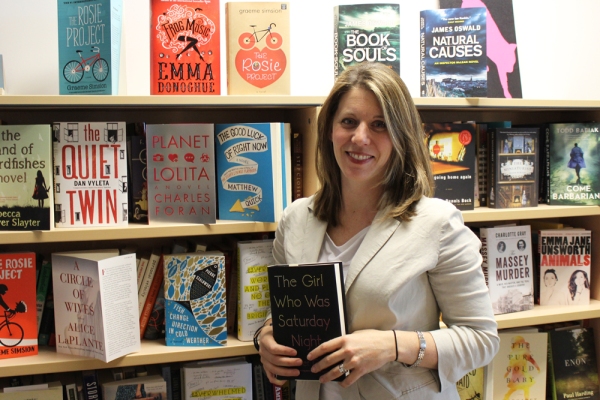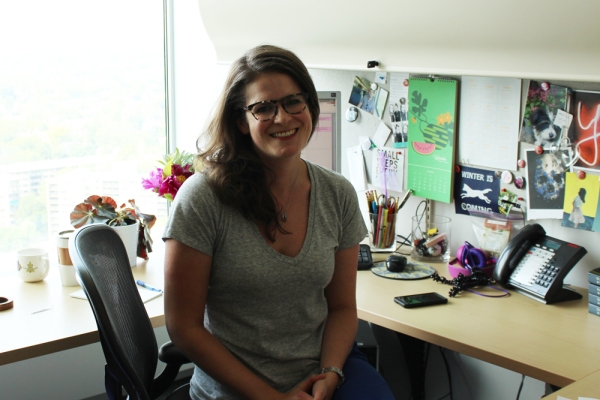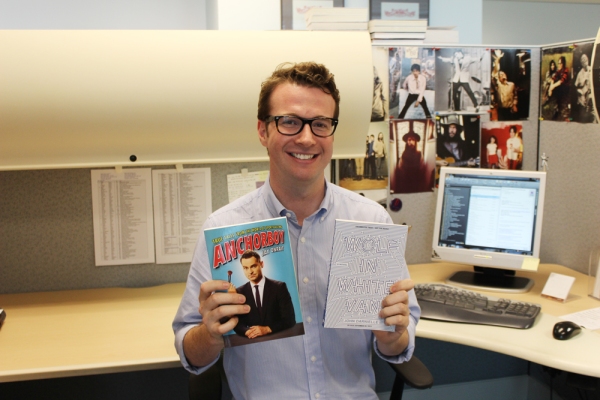At the beginning of the year, we asked some of our fellow Savvy Readers what their New Year’s resolutions were. In addition to reading more, many of you said that you’d like to focus on writing in 2014. As the halfway point of the year approaches, we want to motivate you to work towards your goal… and asked 10 editors from HarperCollins Canada to help! Below, professional editors (whose expertise range from Cookbooks to Fiction, Non-fiction to Children’s Books) share their #1 piece of advice.
Read on, because regardless of whether you write for pleasure or are an aspiring author, I’m sure you can find something helpful from the tips below.
1. Read!
“Read, read widely and read for your enjoyment. Read outside of your usual genres, read books on the bestseller list and talk about the books you love.”
—Brad Wilson, Editorial Director (Collins).
2. Don’t Focus On Your Ending
“In fiction, there is a temptation to write toward an ending. While it’s smart to have a strong idea of plot, over the course of writing the story, characters will take on lives of their own and the narrative can take on new directions, so what you had planned may not be the right conclusion anymore. Resist trying to shoehorn the story into an ending.”
—Jennifer Lambert, Editorial Director (Fiction). On Twitter @lambert_jenn!

3. Be Open to Change
“There are a thousand ways to tell a story, and how you tell it can be just as important as what you tell. If you’re struggling with your book, consider approaching it from a different angle—perhaps changing the narrator, the narrative point of view, or even the structure.”
—Jane Warren, Editor. On Twitter @JaneWarrenEdits!
4. Don’t Underestimate Narrative in Non-Fiction
“The best narrative non-fiction reads like fiction, with a strong narrative arc, compelling characters, evocative settings, layered plotlines, and heroes we can all cheer for, all bursting from the seed of one great story. Start with the core of the narrative and build out from there; you’ll be surprised how complex and how interesting almost any story can become.”
—Jim Gifford, Editorial Director (Nonfiction). On Twitter @JimGiffordEd!
5. Know Your Readers
“Remember your readers, especially for non-fiction. Be true to your own voice, but remember who you’re speaking to, how they’ll take in what you’re saying, and what they might hope to take away from their reading experience. A happy, satisfied reader talks to other readers about the books she loves, and that enthusiasm is what builds perennial bestsellers.”
—Kate Cassaday, Senior Editor. On Twitter @katecassaday!

6. Cookbooks are books, too!
“Cookbook authors should think like writers. Their work needs a beginning, middle and end just like a story, and I don’t mean apps through mains to desserts! A great cookbook has a coherent narrative and a passionate author with a distinct, engaging voice. Cookbooks that readers return to again and again are not just about great recipes, but about great ideas. My ideal cookbook offers sustenance for the cook, the eater and the reader.”
—Kirsten Hanson, Senior Cookbook Editor.
7. Write Now, Stress Later
“The most important thing about writing is what is in front of you, the work itself, not getting published. When the work is truly ready, then you will find a publisher. Be true to yourself, to the work, first and foremost.”
—Patrick Crean, Publisher (Patrick Crean Editions).
8. Fiction Needs Tension
“Effective fiction needs tension or, to put it differently, a problem. It can be straightforward, like a murder, or subtle, such as a hint of dissatisfaction beneath the surface of a happy marriage. Tension is what makes things happen in a story, in any genre, and one of the novelist’s important tasks is to identify the right problem to drive and sustain his or her story–whether or not the problem is solved by the conclusion.”
—Lorissa Sengara, Editor. On Twitter @LorissaSengara!
9. Know Your Genre
“Some writers begin with they believe to be the easier genres and categories—short stories, children’s books and commercial women’s fiction, among others—with the idea that they’ll work their way up to more ‘serious’ works from there. But that’s like saying it’s easier be a professional sprinter than a professional marathoner just because more people can finish a mile than a 26.2-mile race. Both events have their unique demands and require specific training, skills and talent. So it is with writing.”
—Hadley Dyer, Executive Editor (Children’s Books). On Twitter @hedyer!
10. Unplug!
“Free yourself from distractions. Turn off your phone, close your browser, get comfortable, and then start writing. Do it right now. Tomorrow never comes.”
—Doug Richmond, Assistant Editor. On Twitter @doug_richmond!

So, what are you waiting for? Get writing!
Kaiti
Follow me on twitter @SavvyReader & @ktvncnt
See my 50 Book Pledge profile here.


I love all of these tips. I’ve pub’d 11 non-fic chn titles but always look for more advice. Thanks!
Great tips! Love this.
Reblogged this on Darryl Foster and commented:
From the horse’s mouth! A great post for aspiring authors, dig in and eat it up!
Reblogged this on Book Junkiez.
Reblogged this on So, I Read This Book Today and commented:
Some great thoughts for any aspiring writer – or even present writers!